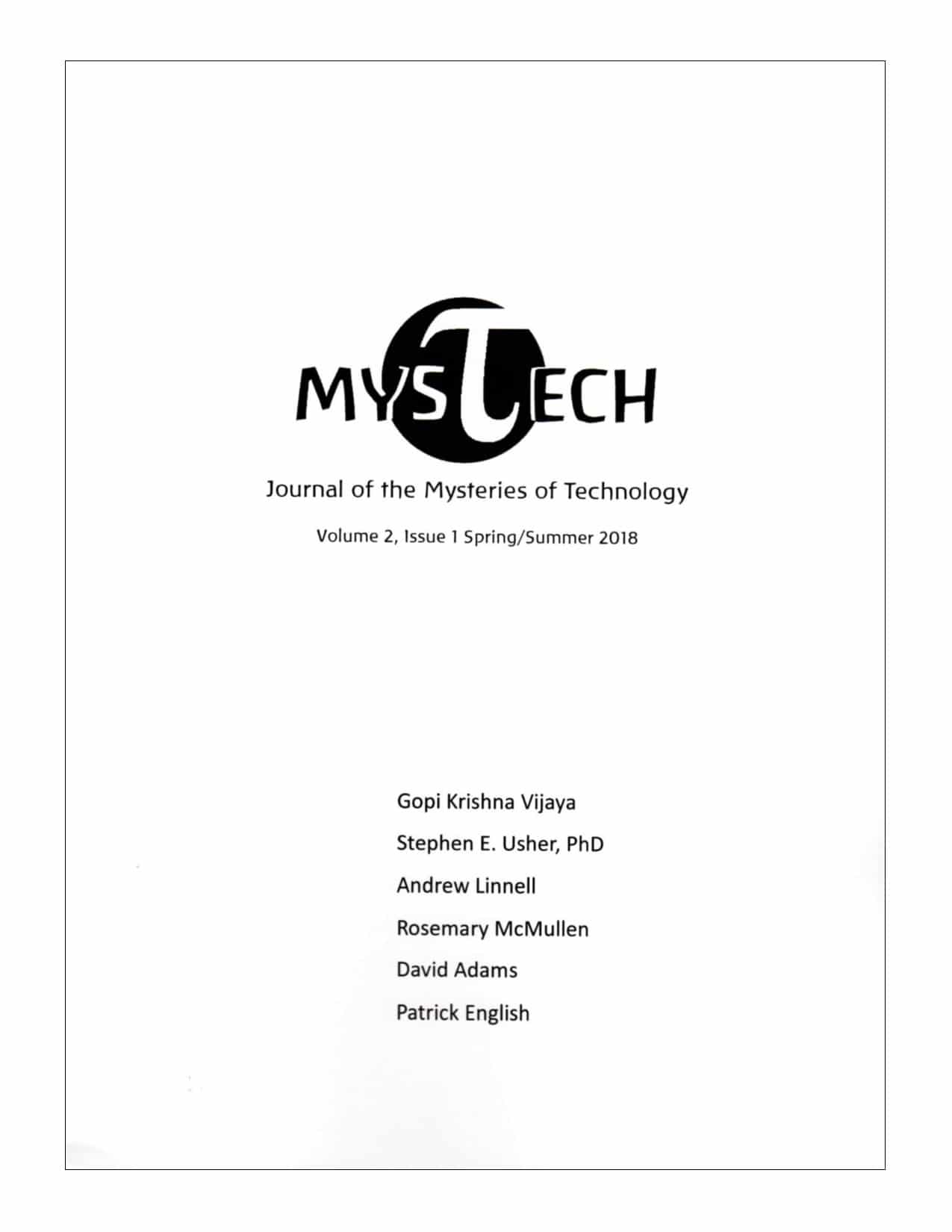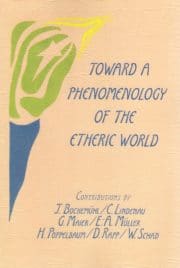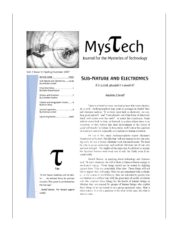In This Issue:
- Foundations for Moral Technology | Gopi Krishna Vijaya, PhD.
- Keely Technology and Eight Related Idea Complexes | Stephen E. Usher, PhD.
- On Consciousness, AI, and Robotics | Andrew Linnell
- Michael School Art: Techné Deeds | Rosemary McMullen
- Manfred Bleffert’s “America” | David Adams
- “. . . about the will in the artistic process of 3D design on computers” | Paul-Gerhard Reeh reported by David Adams
- Reflections of a MysTech Beginner | Patrick English
About the Authors
Dr. Gopi Krishna Vijaya is from Bangalore, India. He has completed his undergraduate physics training from the Indian Institute of Technology Kanpur (India), and his PhD in Physics (Solar Energy) from the University of Houston in 2014. He is currently engaged in the Postdoctoral Research of the Reciprocal System of Physics – a way to inculcate Goethean thought into modern physics – in Salt Lake City, USA.
His work spans several subjects and is mainly focused on their connection to spiritual science. Some samples of his work include:
- Projective Geometry and its significance in Architecture (2-day workshop)
- Technology and the Laws of Thought (on computers – published in the Waldorf Research Bulletin)
- What is India? (On the Threefold nature of the Indian subcontinent, published online)
- Living nature of Liberty (study of ideas behind Libertarianism)
- Several papers in Physics with regard to Goethean Science, foundations of astronomy, calculus, and the Reciprocal System of physics theory. (available online)
In the natural scientific domain, he has been the author of 13 journal publications in experimental and theoretical semiconductor physics, presented his work in multiple international conferences (IEEEPVSC, SPIE etc.), served as a research mentor for a number of students, worked with the Port of Galveston Solar Project and collaborated with MIT, Cal Tech, Imperial College London, University of New South Wales and the University of Tokyo among others in an International Consortium for Solar Energy.
Stephen E. Usher received a BA and an MA in mathematics and a PhD in economics from the University of Michigan. Upon graduation Mr. Usher took a position at the Federal Reserve Bank of New York. Later he took on the management of the Anthroposophic Press which he guided for eight years. While at the press he became acquainted with Nobel Laureate, Saul Bellow, and persuaded him to write a foreword to Rudolf Steiner’s Boundaries of Natural Science. Leaving the press he returned to the economics profession working for an international firm of consulting economists. The 2000’s found him an independent economic consultant. He also taught history and other subjects in a Waldorf School. He has lectured and written widely on various anthroposophical topics including the Threefold Social Organism, esoteric development, esoteric Christianity, and Gnomes.
Andrew Linnell is a 42 year veteran of the computer industry and a graduate of the University of Michigan (MSE ’73) and Emerson College, England (’79). A member of the Anthroposophical Society since 1979, he is president of the Boston Branch, faculty member for the Village University of Concord, and member of the School for Spiritual Science. He has spoken to branches and libraries throughout the USA and abroad on various topics from Quantum Physics to Christian Mysticism to Art History.
Rosemary McMullen has worked mainly as a university educator, writer and editor. She earned her Ph.D. in English at the University of Illinois, and taught over twenty-five years in Puerto Rico, New York City, and Washington, D.C. She encountered Rudolf Steiner in the mid-1990s researching and writing articles for The Encyclopedia of Angels [Facts on File 1997]. She attended Sunbridge College 2002-2004 and taught in several Waldorf Schools. She joined the first MysTech on-line study group January 2017 and started co-leading a year later.
David Adams holds a Ph.D. in Art History Education and currently teaches art history at Sierra College in California. Since 1974 he has periodically taught and administered in several Waldorf schools, spending more than nine years working in the diverse roles of class teacher, special subject’s teacher, high school teacher, remedial teacher, and school administrator. He has published a number of articles on Waldorf education as well as the book One, Two, Three! He has also taught art history at several state universities and art schools.
Patrick English earlier studied theology, then became a psychiatric nurse practitioner and discovered Rudolf Steiner ten years ago. He currently works as a therapist. He also is studying homeopathy and farming several acres biodynamically with his family in Western Pennsylvania. In January 2018 he joined the MysTech Beginner’s study group.












Reviews
There are no reviews yet